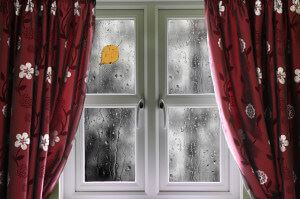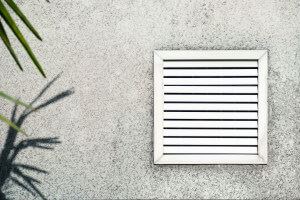Living in a country with such mild weather, you probably frequently wonder how you can stop condensation from forming on your windows. Unfortunately, a combination of the frequently cold temperatures outside and the heating constantly being on inside means that condensation is a common problem for many of us.

While this may seem like a fairly harmless problem, excess moisture can lead to more serious problems such as damp or mould. So how do you stop condensation on windows? The good news is that you can learn how to stop condensation on your windows with just a few simple but effective techniques.
Avoid drying clothes in the house
Drying your clothes outside or in a tumble dryer is one of the best ways to stop condensation on windows, so always try to do this if you are able. Drying your washing in the house causes excess moisture to escape and condensation to form. If indoor drying is unavoidable, open a window or use a dehumidifier while your clothes are drying to minimise any damage caused.
Make sure your house is properly ventilated
Ventilation is often a problem in winter because we do everything we possibly can to keep the cold air out. If you’ve been wondering how to stop condensation on windows for a while now, it really is worth ensuring your home is properly ventilated.

The easiest way to do this is simply to open a window, even if it’s just for an hour or so. If you’re worried about the house becoming too cold, plantation window shutters can offer you some relief. With the slats open, air can still circulate around the room to stop condensation, but it won’t be anywhere near as cold as it would be normally. Perfect for keeping the temperature of your living room regulated as you kick back and relax.
If condensation is causing you serious problems, it may be worth having some vents installed.
This can include:
- Air bricks. These are bricks which are specially made with small holes in them. They’re added to outside walls to improve the air flow in a property.
- Air vents for internal walls.
- Roof ventilation tiles or ventilated soffits. These will allow air to enter into your house through the loft.
- Window vents added to the top of your windows so you don’t have to open them to allow air to come through.
Insulate your property
Cold spots found on walls and/or ceilings can increase the likelihood of condensation forming on windows. If you notice these in your property, better insulation such as a cavity wall, loft insulation or specialist insulation materials fixed to the outside of your house can all help to improve the situation. We have some more great insight on how shutters can help with insulating your property.
Close doors
You may think it’s a good idea to leave doors open when cooking, boiling a kettle or having a shower to stop condensation on windows, but this could actually be doing more harm than good. Always try to remember to keep doors closed when doing any of these activities to prevent steam from going into colder rooms and causing condensation to form. Being sure to have waterproof shutters in rooms prone to condensation such as bathrooms and kitchens helps to increase the lifespan of your window dressing.
Re-arrange your furnishings
Believe it or not, your sofa, desk or bookcase could be making your condensation problem even worse. Try to ensure that furniture is at least 50mm away from any surrounding walls so that air can move around properly. If possible, also make sure that wardrobes are placed against internal walls because they’re not as cold as external walls.
Get invested in shutters and see how ventilating your rooms can help stop condensation on your windows! Still unsure whether shutters are for you? Why not arrange a free home survey and speak to our friendly shutter specialists in person – they’ll be happy to talk you through the process and answer your questions.
